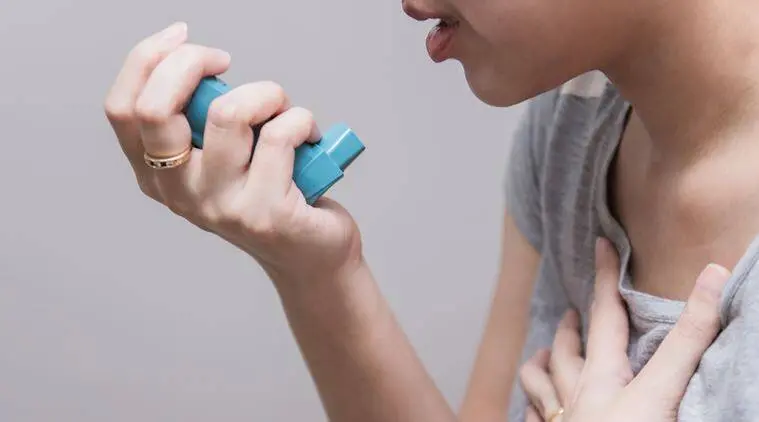- Home
- Medical news & Guidelines
- Anesthesiology
- Cardiology and CTVS
- Critical Care
- Dentistry
- Dermatology
- Diabetes and Endocrinology
- ENT
- Gastroenterology
- Medicine
- Nephrology
- Neurology
- Obstretics-Gynaecology
- Oncology
- Ophthalmology
- Orthopaedics
- Pediatrics-Neonatology
- Psychiatry
- Pulmonology
- Radiology
- Surgery
- Urology
- Laboratory Medicine
- Diet
- Nursing
- Paramedical
- Physiotherapy
- Health news
- Fact Check
- Bone Health Fact Check
- Brain Health Fact Check
- Cancer Related Fact Check
- Child Care Fact Check
- Dental and oral health fact check
- Diabetes and metabolic health fact check
- Diet and Nutrition Fact Check
- Eye and ENT Care Fact Check
- Fitness fact check
- Gut health fact check
- Heart health fact check
- Kidney health fact check
- Medical education fact check
- Men's health fact check
- Respiratory fact check
- Skin and hair care fact check
- Vaccine and Immunization fact check
- Women's health fact check
- AYUSH
- State News
- Andaman and Nicobar Islands
- Andhra Pradesh
- Arunachal Pradesh
- Assam
- Bihar
- Chandigarh
- Chattisgarh
- Dadra and Nagar Haveli
- Daman and Diu
- Delhi
- Goa
- Gujarat
- Haryana
- Himachal Pradesh
- Jammu & Kashmir
- Jharkhand
- Karnataka
- Kerala
- Ladakh
- Lakshadweep
- Madhya Pradesh
- Maharashtra
- Manipur
- Meghalaya
- Mizoram
- Nagaland
- Odisha
- Puducherry
- Punjab
- Rajasthan
- Sikkim
- Tamil Nadu
- Telangana
- Tripura
- Uttar Pradesh
- Uttrakhand
- West Bengal
- Medical Education
- Industry
Single inhaler therapy decreases frequency and intensity of asthma exacerbations: Review

USA: A recent study published in Annals of Allergy, Asthma & Immunology on July 2022 found that some of the clinical trials supported single maintenance and reliever therapy (SMART's) efficacy, on the other hand, a vast majority showed a marked decrease in the frequency and severity of asthma exacerbations.
Syed Fahmeed Imam and colleagues conducted this study in order to assess the efficacy and viability of SMARTs in the management of asthma exacerbations.
The key findings of this extensive review were as follows:
1. The effectiveness of SMART in minimizing asthma exacerbations in comparison to conventional inhaled corticosteroid (ICS) maintenance and short-acting beta-agonist (SABA) rescue therapy has been examined in several trials.
2. The majority of the randomized trials showed a decrease in asthma exacerbations, and open-label studies also showed similar benefit in this area.
3. Increased dosages of long-acting beta-agonists have previously sparked concerns due to their ability to conceal symptoms and postpone receiving proper medical care.
4. Studies, have not shown any significant rise in morbidity or death.
5. The fact that many of these trials were funded by pharmaceutical firms is the main cause for concern
In conclusion, the results of these studies show the effectiveness of SMART in reducing asthma exacerbations and improving asthma control with lower doses of ICS in comparison to fixed doses of ICS-LABA for maintenance or higher doses of ICS, both with SABA as needed, while also possibly reducing requirements for oral corticosteroids.
Nevertheless, the researchers noted that their findings were not all agreed upon despite these encouraging results. The authors ask for more studies by other groups to confirm SMART's efficacy because pharmaceutical firms support these studies as well. In order to assist patients in better adhering to SMART suggestions, the authors also noted the necessity for insurance companies to address policy adjustments.
Reference:
Imam, S. F., Zafar, S., & Oppenheimer, J. (2022). SMART in treatment of asthma exacerbations. In Annals of Allergy, Asthma & Immunology. Elsevier BV. https://doi.org/10.1016/j.anai.2022.07.024
Neuroscience Masters graduate
Jacinthlyn Sylvia, a Neuroscience Master's graduate from Chennai has worked extensively in deciphering the neurobiology of cognition and motor control in aging. She also has spread-out exposure to Neurosurgery from her Bachelor’s. She is currently involved in active Neuro-Oncology research. She is an upcoming neuroscientist with a fiery passion for writing. Her news cover at Medical Dialogues feature recent discoveries and updates from the healthcare and biomedical research fields. She can be reached at editorial@medicaldialogues.in
Dr Kamal Kant Kohli-MBBS, DTCD- a chest specialist with more than 30 years of practice and a flair for writing clinical articles, Dr Kamal Kant Kohli joined Medical Dialogues as a Chief Editor of Medical News. Besides writing articles, as an editor, he proofreads and verifies all the medical content published on Medical Dialogues including those coming from journals, studies,medical conferences,guidelines etc. Email: drkohli@medicaldialogues.in. Contact no. 011-43720751


